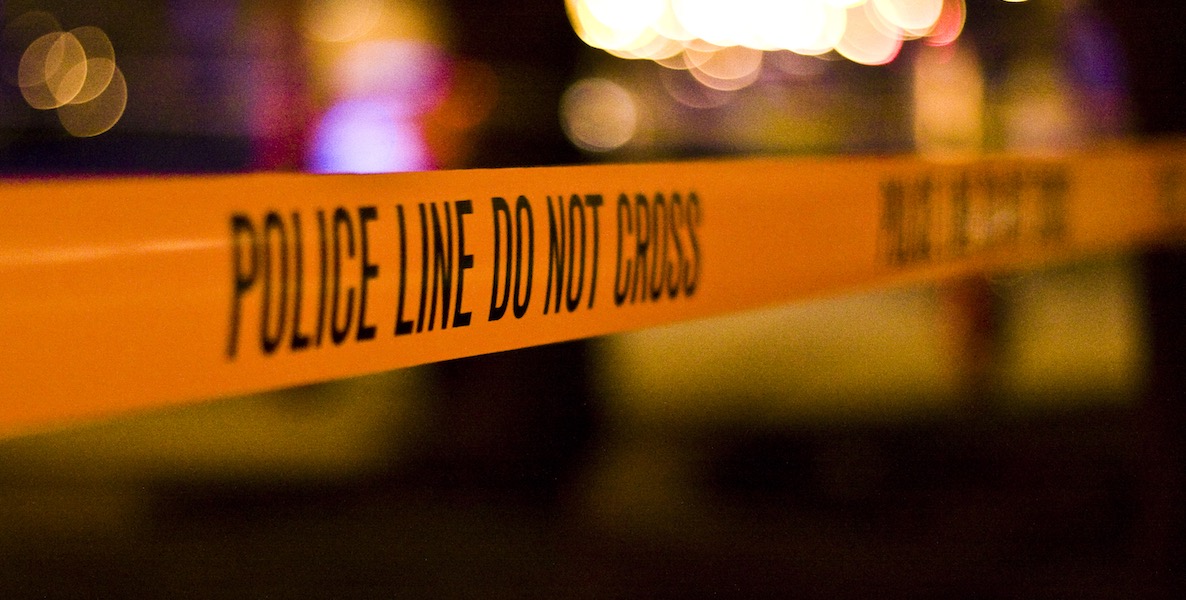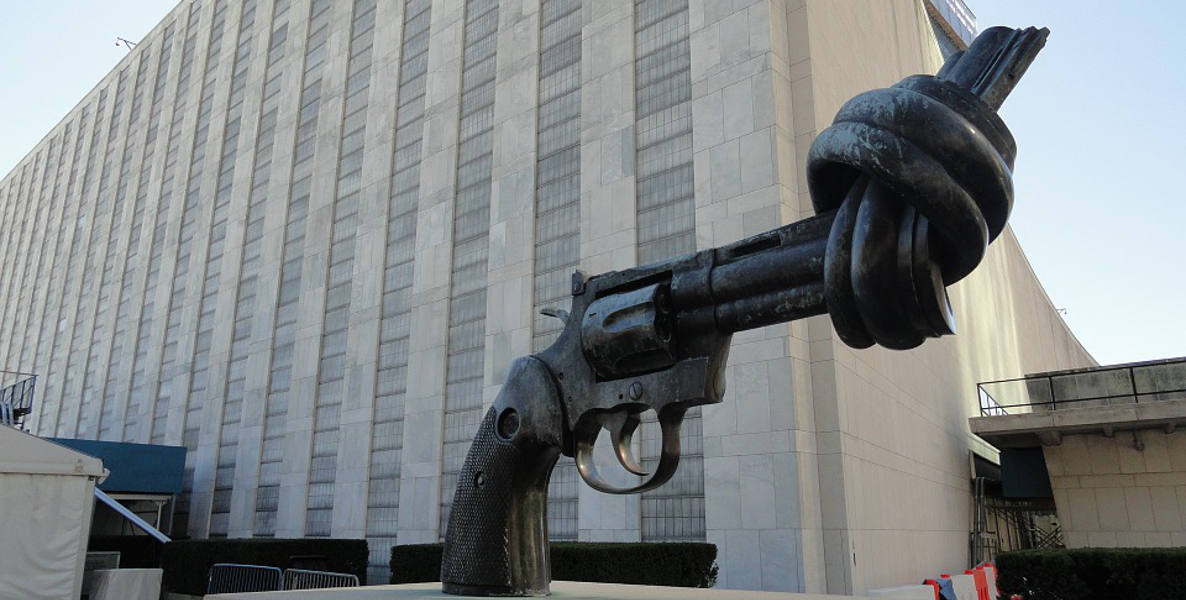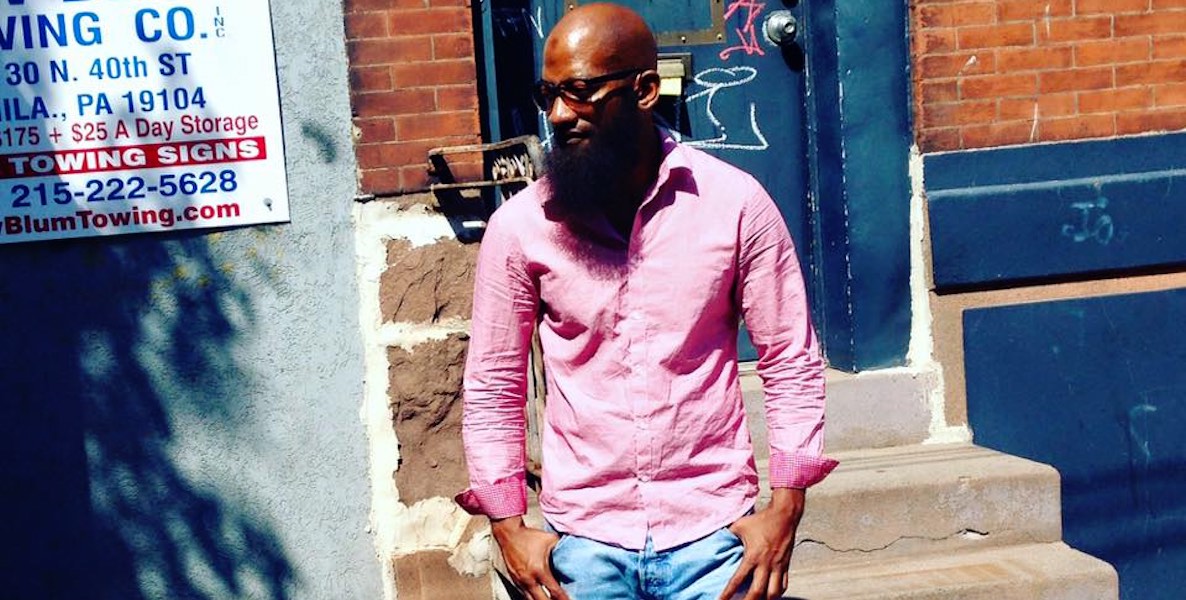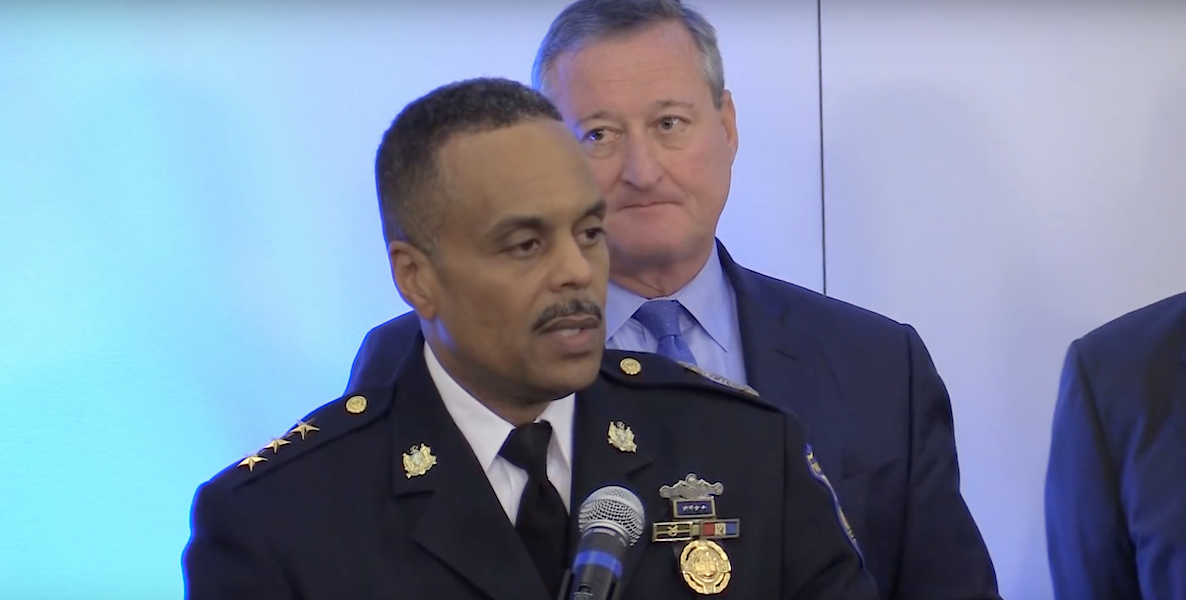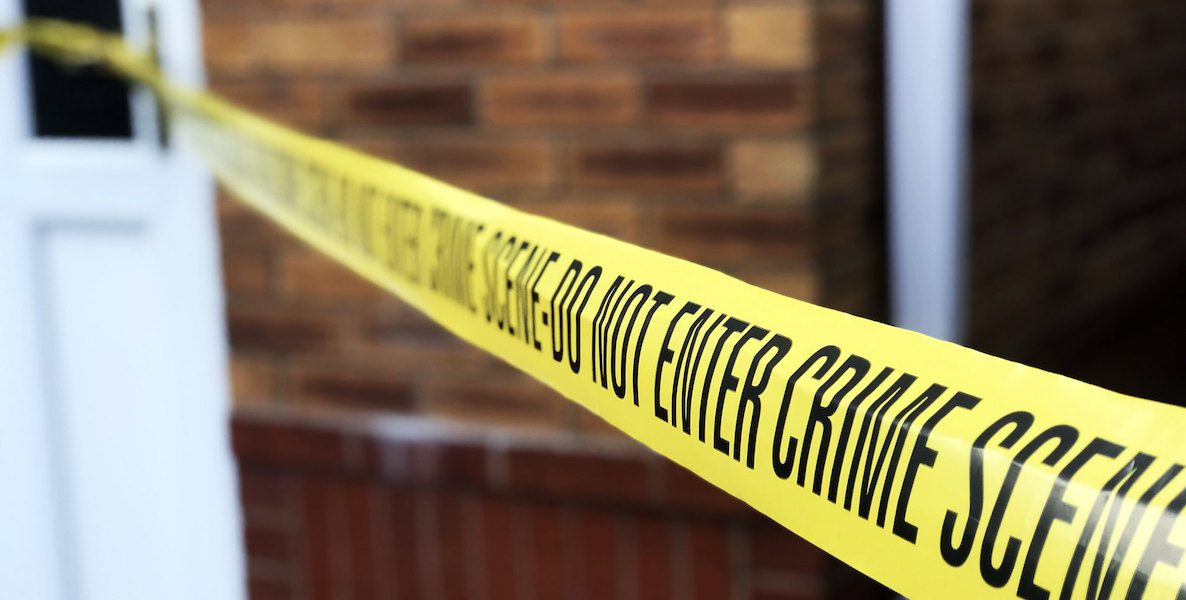Philly has a funny way of showing how much it cares about its own gun violence crisis.
Just days after a horrific shoot-out in Nicetown, which could have easily added to the city’s escalating homicide rate, a weird plot twist unfolds in Philly with the abrupt, didn’t-see-that-coming resignation of Police Commissioner Richard Ross. Residents and, indeed, the nation, are stunned by the timing of it.

Prefer the audio version of this story? Listen to this article in CitizenCast below:


Mayor Kenney and City Council President Darrell Clarke, meanwhile, reacted to the news of Ross’s abrupt resignation with disappointment—but said nothing about the Philadelphia violence crisis that Ross clumsily presided over.
Let’s not gloss over that or pepper it with toppings of hollow platitudes saying the man was a “stellar” chief. He wasn’t: gun violence keeps going up and his department’s homicide division hasn’t yet cracked through a dismal, below-national-average 40 percent murder case clearance rate. It was as if, in Philly, the police chief job description didn’t include managing such. Kenney, strangely, showed way more emotion and frustration about gun violence and outgunned officers while reacting to Nicetown, than he ever publicly showed for higher levels of violence in distressed Philly neighborhoods and outgunned residents.
![]() How do you not mention or link a police chief’s resignation to a homicide rate that’s on path to beat the record set just last year? That number is now at 216, as of this writing, which is 5 percent higher than the same time in 2018 (still higher than much larger urban cousins New York City and Los Angeles). Certainly, the Mayor should explain and tackle his police agency’s ongoing and unresolved problems with racism and sexism. But he should find every opportunity to also discuss and link that culture with how the city and a city police commissioner is supposed to handle rising gun violence. The Council President should, too.
How do you not mention or link a police chief’s resignation to a homicide rate that’s on path to beat the record set just last year? That number is now at 216, as of this writing, which is 5 percent higher than the same time in 2018 (still higher than much larger urban cousins New York City and Los Angeles). Certainly, the Mayor should explain and tackle his police agency’s ongoing and unresolved problems with racism and sexism. But he should find every opportunity to also discuss and link that culture with how the city and a city police commissioner is supposed to handle rising gun violence. The Council President should, too.
Mayor Kenney and City Council President Clarke reacted to the news of Ross’s abrupt resignation with disappointment—but said nothing about a Philadelphia violence crisis Ross clumsily presided over.
Increasing gun violence and strings of mass shootouts in a major city should be the most important focus of a police chief. A police department drowning in its own culture-of-bias feces is more than likely unable to effectively counter that violence. City Hall should acknowledge that it is the case. A new tone on Philly’s violence problem is needed, something that suggests a fresh standard of leadership on the issue that moves the city forward and tells everyone the situation is intolerable… versus template statements on how much we’ll miss the last commish.
![]() To many of Philadelphia’s Black residents—a community which is, sans seasonal sports successes, a torn universe apart from the rest of the city—the timing is as downright shady as the reason for which Ross resigned. Just days after he engineered Maurice Hill’s peaceful exit from that North Philly rowhouse—being praised by Mayor Kenney as the “best police commissioner in America”—he’s out on the street himself? Is that because, WURD listeners wonder, he let a black man survive an attack on police? Ross has denied he was pushed out, but as conspiracy theory as it is, it’s hard for some to see anything less given how much leeway he’d already gotten from Kenney and the rest for failing to do his job well for so long.
To many of Philadelphia’s Black residents—a community which is, sans seasonal sports successes, a torn universe apart from the rest of the city—the timing is as downright shady as the reason for which Ross resigned. Just days after he engineered Maurice Hill’s peaceful exit from that North Philly rowhouse—being praised by Mayor Kenney as the “best police commissioner in America”—he’s out on the street himself? Is that because, WURD listeners wonder, he let a black man survive an attack on police? Ross has denied he was pushed out, but as conspiracy theory as it is, it’s hard for some to see anything less given how much leeway he’d already gotten from Kenney and the rest for failing to do his job well for so long.
How Kenney and City Council handle that, on top of everything else, throughout the course of a selection process for the next police chief is anyone’s guess. It’s unclear if Kenney, who’s about to home-run slide into a second term unchallenged, even really cares about the sensitive racial aspects, beyond the “optics,” as he put it, of being a white male. Reaching for a quick optical boost as if he was reaching for a stick of gum to douse bad breath, Kenney quickly called on Deputy Commissioner Christine Coulter to somehow make this all less painful. That move looked like classic frantic damage control: find the most senior woman around and maybe that puts a good blanket on the rampant gender bias fire engulfing the Philadelphia Police Department. He then spends about 40 percent of his Ross resignation statement praising the achievements of Coulter.
A police department drowning in its own culture-of-bias feces is more than likely unable to effectively counter that violence.
Is that because his mind is already made up on a permanent replacement? Or is it to make up for the fact that he moved so fast he tripped over Coulter’s own liabilities: She’s one of 11 defendants in the same federal civil rights lawsuit Ross just took a sword for, and not just named in it, but also someone accused of discriminating against two Black women in it. If that’s not enough, there’s still the foggy details of her alleged involvement in a deadly 1994 police beating cover-up that ended in a $250,000 settlement.
![]() None of the above looks good. Philly is in desperate need of a splash of different. Now would be a good time for a credible, well-funded, enough-is-enough Independent mayoral candidate to challenge the presumed winner in November 2019. But Philly politics are the one thing that never ends up like a novel. In fact, it reads more like the faded manual in a used car. It will be, tragically, business as usual and an attitude from a collective of career politicians who won’t bother changing it, because, ultimately, less than a quarter of registered voters turned out… and they didn’t seem bothered by any of this.
None of the above looks good. Philly is in desperate need of a splash of different. Now would be a good time for a credible, well-funded, enough-is-enough Independent mayoral candidate to challenge the presumed winner in November 2019. But Philly politics are the one thing that never ends up like a novel. In fact, it reads more like the faded manual in a used car. It will be, tragically, business as usual and an attitude from a collective of career politicians who won’t bother changing it, because, ultimately, less than a quarter of registered voters turned out… and they didn’t seem bothered by any of this.
Charles D. Ellison is executive producer and host of “Reality Check,” which airs 4 to 7 p.m. Monday through Thursday on WURD Radio (96.1FM/900AM). Check out The Citizen’s weekly segment on his show every Tuesday at 6 p.m. Ellison is also principal of B|E strategy and the Washington correspondent for The Philadelphia Tribune. Catch him if you can @ellisonreport on Twitter.
Photo courtesy DPP Law


